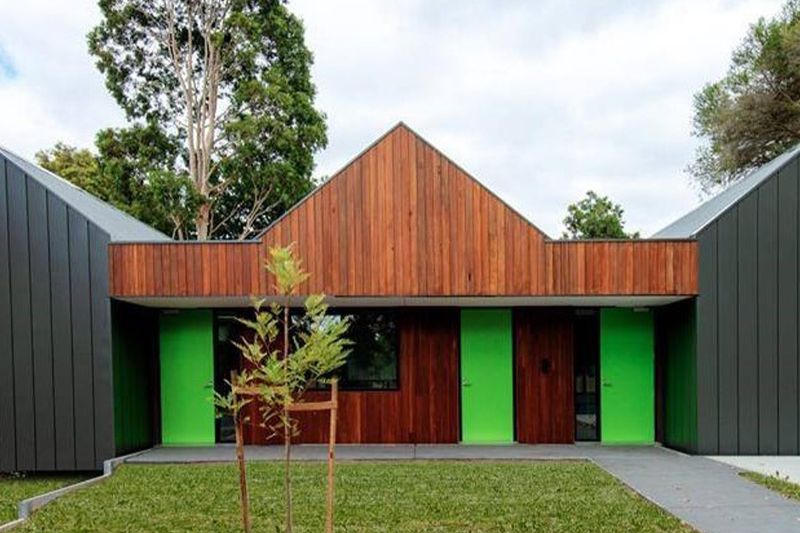Sign up to the Built Offsite Newsletter

The Victorian Government’s parliamentary inquiry into the rental and housing affordability crisis in Victoria has identified modular housing as a viable path forward.
A Victorian parliamentary inquiry, which published its findings last week, has cast a spotlight on the multifaceted housing and rental affordability crisis in the state, with modular housing emerging as a key focus. Initiated in May by the Legislative Council’s Legal and Social Issues Committee, the inquiry has revealed a complex set of challenges and a range of potential solutions. (Main pic: Modular builder Modscape affordable housing.)

The committee, comprising government, opposition, and independent members, underscored the Victorian government’s crucial role in addressing the housing supply issue. Chair Trung Luu acknowledged the limited levers available to the government, highlighting the need for a comprehensive, national strategy that engages both the private sector and government. The committee’s findings were clear: there is no single ‘silver bullet’ to resolve these challenges.
Amidst various recommendations, the committee expressed caution regarding homeowner grants and rent freezes, suggesting these could inadvertently inflate prices. However, they recognised the necessity of such measures in dire situations, for example, during the COVID-19 pandemic or for individuals at risk of homelessness.
The committee, however, placed significant emphasis on modular housing as a viable solution for improving housing affordability
The inquiry identified two main barriers to the broader adoption of modular housing: negative perceptions and stringent government regulations. The Master Builders Association of Victoria also presented to the inquiry. In its 2023 report ‘Building a Transition’, the MBAV identified a general preference for traditional construction methods, stemming from a lack of awareness about the benefits and possibilities of modular housing.
To overcome these barriers, regulatory changes were suggested, including revising on-site building inspection practices, standardising a modular building code across states, and updating regulations for new materials, including 3D printing.
The potential of modular housing extends to social and emergency housing sectors, the inquiry found. The committee received submissions highlighting how modular housing could rapidly enhance Victoria’s emergency and transitional housing stock. The Western Homelessness Network suggested utilising transportable and demountable dwellings on surplus government land, advocating for collaborations between local governments, community housing organisations, and the private sector.
An example presented to the Committee was the Harris Transportable project in western Melbourne, which used prefabricated tiny homes on vacant Crown land to provide rent-free accommodation for individuals who had experienced long-term homelessness. This project was designed to not only meet immediate housing needs but also to foster community and stability for its residents.
The inquiry’s findings and recommendations point towards a nuanced approach to Victoria’s housing crisis, with modular housing playing a pivotal role.